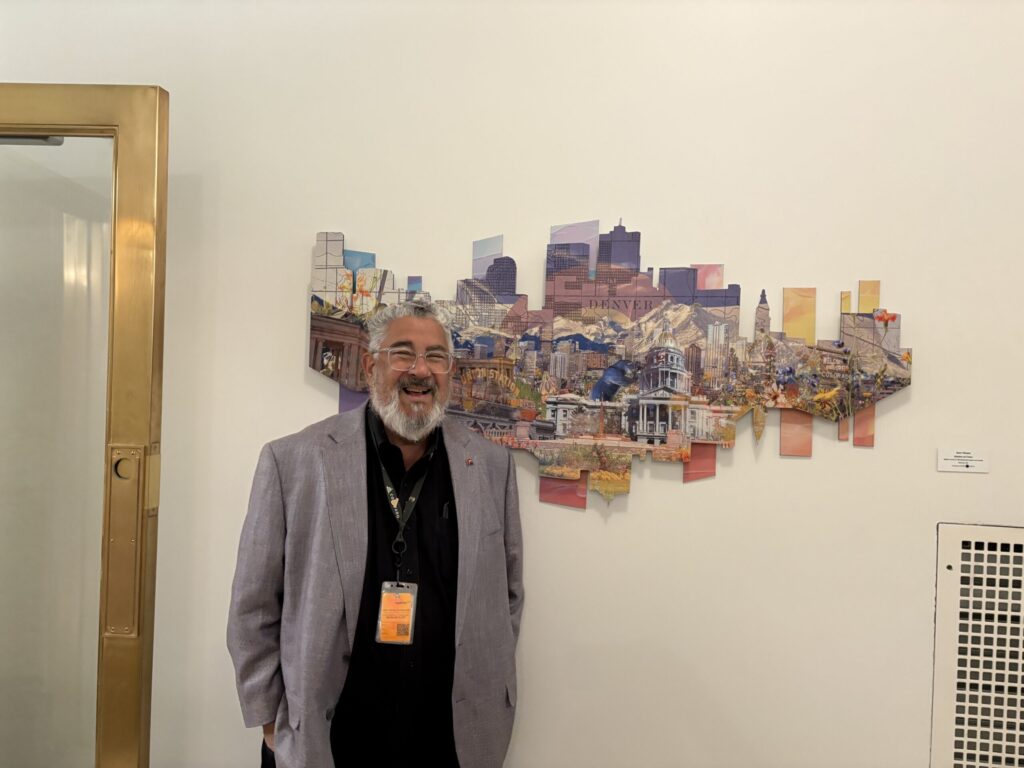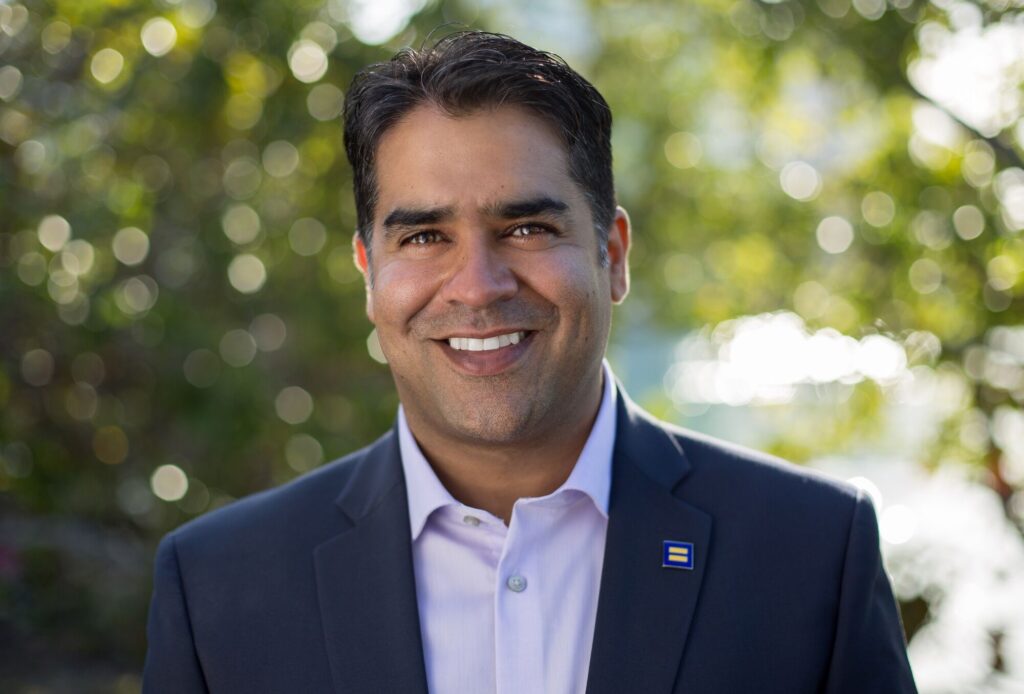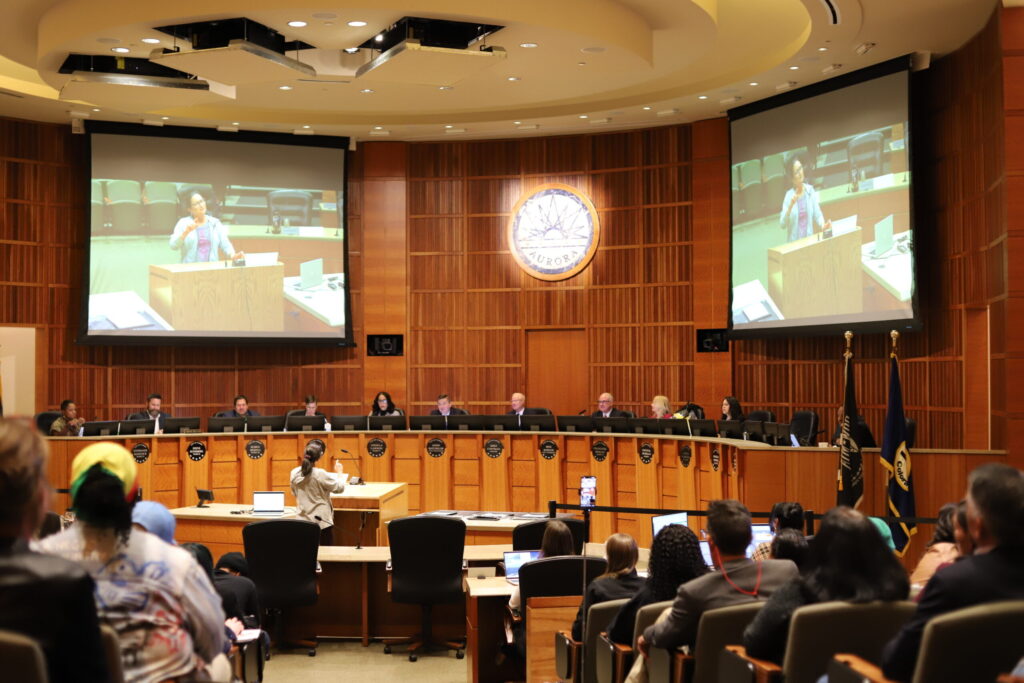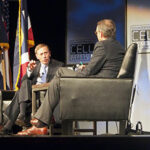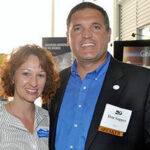A sweet fundraiser for Hick in the heart of Grand Junction’s ‘Peach Country’
Deputy Attorney General Bernie Buescher, a former Democratic state representative and former secretary of state, and his wife Mary Beth hosted a fundraiser for Gov. John Hickenlooper in Grand Junction prior to the Club 20 debate Saturday afternoon. While Mesa County leans heavily Republican, 40 or 50 supporters of the Democratic incumbent enjoyed Palisade peaches and ice cream on a warm afternoon. The Governor arrived with several West Slope members of his cabinet, son Teddy and wife Helen Thorpe in tow. Susan Phillips, owner of the Plum Creek Winery in Palisade, poured her wines as she commented that while many local Republicans deny global warming, after 30 years it is becoming increasingly difficult to grow quality wine grapes in the Grand Valley. Night temperatures no longer drop as they used to, she explained, failing to adequately cool her grapes by morning.
“Who would have thought the day would come when you might not be able to produce wine in Colorado?” she asked.
The Governor was on a tight schedule that only allowed time for a few remarks. He began by explaining that his experience as Mayor of Denver, serving in a non-partisan election regime, had not prepared him for the partisan bickering he has experienced at the State Capitol.
“At first I kept trying to find the middle ground — the compromise that would work for everyone. It took me a while to realize that some of the folks in Denver are more interested in scoring points than in solving problems,” he noted.
He also chafed against accusations that he has trouble making decisions.
“We have to make decisions every day. When the floods hit, we were making decisions every few minutes and hoping for the best.”
He contrasted the notion of leadership as ‘having all the answers’ and persuading others to agree with you, versus leadership when you are required to respond to the unexpected and make choices that produce positive outcomes. Hitting a theme he would echo during the later debate, Hickenlooper explained, “I believe the Colorado way is to do things together!”
He then unveiled his campaign’s strategy for responding to negative political ads.
“We know they’re coming, but we will not put up any negative ads of our own,” he promised.
Acknowledging, however, that it may be important to respond to the worst of them, the Governor outlined the campaign’s intention to produce brief video rebuttals. They will be e-mailed out to all of Hick’s campaign supporters in hopes that they will in turn forward them to their own lists.
“We hope they will be funny, and that you can make them go viral for us. Send them to your kids and ask them to resend them to their friends.”
It certainly isn’t the kind of response campaign consultants would advise, but Colorado’s governor has done the unusual before and made it work for him. Everyone seemed to like the idea. He then introduced the cabinet members who had accompanied him and emphasized that four were from the Western Slope, more than in any other governor’s cabinet in recent memory.
Despite appeals from his staffers, he remained for another 15 minutes answering questions. Many of these came more in the form of appreciation for the interventions of the Governor and his staff on behalf of the Western Slope. When the Health Care Exchange initially published insurance rates last year, they were significantly higher for mountain and rural counties in western Colorado than for the Front Range. Quick intervention by the Division of Insurance helped better equalize premiums, although there remains some difference or “…more work to do” as the Governor explained. He responded to another inquiry by pointing out that he had visited Club 20 counties more than 150 times during the past four years.
“This is the part of Colorado that brings people to our state. I get that.”
Colorado Politics Must-Reads:








